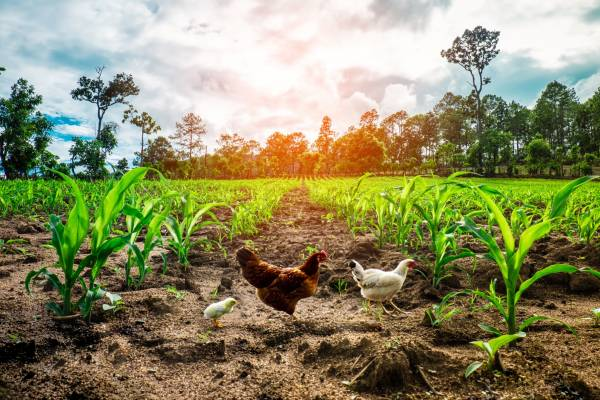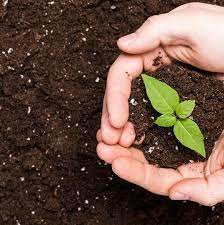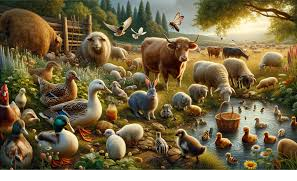
On the auspicious day of February 1st, 1990, The Khuman Yangbi Khongpak Makha Paddy Cum Pisciculture Co-Operative Society Ltd. was officially formed with registration number 11 of 1989-90 in Mayang Imphal. This marked the beginning of a collective dream to transform agriculture in our region. At its inception, the society was blessed with visionary leadership: G. Iboyaima Sharma as Secretary, W. Kunjeshore Singh as President, and Wanjam Sunil Meitei as Treasurer.
The journey of The Khuman Yangbi Khongpak Makha Paddy Cum Pisciculture Co-Operative Society Ltd. began with a collective dream to revolutionize agriculture in our region. Recognizing the potential of pisciculture and organic vegetable plantations, we embarked on a mission to establish a cooperative that would combine both ventures. We pooled our resources, knowledge, and passion to turn our vision into reality. Securing suitable land and obtaining necessary permits were the initial challenges we faced, but our determination never wavered. Through meticulous planning and strategic partnerships, we laid the foundation for our cooperative.
With unwavering determination and a clear vision, the society embarked on its mission to combine pisciculture and organic vegetable plantations. The journey was not without challenges, but the team remained steadfast, overcoming hurdles with resilience and unity. The society diligently secured suitable land and necessary permits to commence operations. Meticulous planning and strategic partnerships were pivotal in laying the groundwork for success.
As we sowed the seeds of our cooperative, we envisioned a future where agriculture thrived in harmony with nature. Overcoming setbacks and obstacles, we persevered with resilience and unity.
The support of our local community and government agencies bolstered our efforts and encouraged us to aim higher. Gradually, our cooperative gained recognition for its commitment to sustainability and excellence in agricultural practices. The synergy between pisciculture and organic vegetable plantations proved to be mutually beneficial, enhancing both productivity and environmental health. Through transparent governance and equitable distribution of profits, we upheld the principles of cooperation and solidarity. Our journey was not without its challenges, but each hurdle strengthened our resolve and deepened our sense of purpose.
Today, The Khuman Yangbi Khongpak Makha Paddy Cum Pisciculture Co-Operative Society Ltd. stands as a beacon of hope and success, a testament to what can be achieved through collective effort and a shared dream.
Integrated Farming

Integrated farming offers numerous benefits, including improved resource utilization, increased productivity, and enhanced sustainability. By combining different agricultural activities such as crop cultivation, animal husbandry, and aquaculture, integrated farming systems promote efficient use of land, water, and nutrients. This holistic approach not only diversifies income streams but also minimizes environmental impact, creating a more resilient and balanced ecosystem.
Dairy Farming

Dairy farming provides several benefits, including a steady source of nutritious milk and dairy products for consumption. It offers employment opportunities, particularly in rural areas, contributing to economic development and livelihood improvement. Additionally, dairy farming plays a crucial role in nutrient cycling by utilizing agricultural by-products as feed, thus reducing waste and promoting sustainability. It also serves as a means of rural empowerment, empowering small-scale farmers and fostering community resilience. Moreover, dairy farming supports food security by ensuring access to essential nutrients like protein, calcium, and vitamins.
Horticulture Development

Horticulture development brings numerous advantages, including the cultivation of a diverse range of fruits, vegetables, flowers, and ornamental plants. It contributes to dietary diversity and improved nutrition, as horticultural crops are rich in vitamins, minerals, and antioxidants. Horticulture also generates employment opportunities along the value chain, from production to marketing, enhancing livelihoods and economic growth. Moreover, it promotes environmental sustainability through the use of organic farming practices and the preservation of biodiversity. Lastly, horticulture development fosters beautification of landscapes, urban green spaces, and recreational areas, enhancing the overall quality of life.
Rain Water Harvesting

Rainwater harvesting in farms offers numerous benefits, including enhanced water availability during dry seasons, reducing reliance on scarce water resources. It helps mitigate soil erosion by capturing runoff, thereby preserving soil fertility and structure. Additionally, harvested rainwater can be used for irrigation, supplementing conventional water sources and reducing agricultural water costs. This practice promotes sustainable farming practices and resilience to climate change impacts. Moreover, by reducing demand on groundwater, rainwater harvesting contributes to groundwater recharge and overall water conservation efforts.
Soil Health Improvement

Improving soil health yields numerous benefits for agriculture and the environment. Enhanced soil fertility leads to increased crop yields, ensuring food security and farmer livelihoods. Healthy soils also promote better water retention and drainage, reducing the risk of erosion and nutrient leaching. Moreover, fostering a robust soil microbiome supports natural pest and disease suppression, reducing the need for chemical inputs. Investing in soil health contributes to climate change mitigation by sequestering carbon dioxide, thus mitigating greenhouse gas emissions. Overall, prioritizing soil health leads to sustainable agricultural practices and environmental resilience.
Live Stock Breed Improvement

Livestock breed improvements offer several advantages for agriculture and food production. Selective breeding for desired traits such as higher milk or meat yields leads to increased productivity, enhancing profitability for farmers. Improved breeds are often more resilient to diseases and environmental stressors, reducing the risk of losses. Better genetics also contribute to higher quality products, meeting consumer demand for nutritious and safe food. Livestock breed improvements play a crucial role in sustainable farming practices, as they help optimize resource utilization and reduce environmental impact. Ultimately, investing in livestock genetics fosters economic growth, food security, and environmental sustainability.
